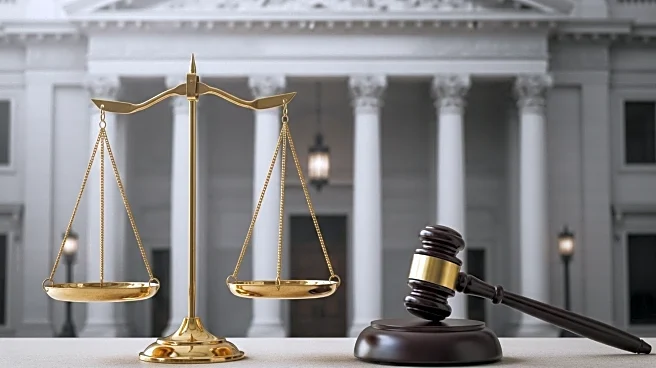What is the story about?
What's Happening?
The U.S. Supreme Court is reviewing a case involving Rep. Michael Bost, R-Ill., who is challenging the constitutionality of an Illinois voting regulation. This regulation allows ballots mailed by Election Day to be counted for up to 14 days after polls close. Despite winning his election, Bost argues that the mail-in ballots reduced his margin of victory and increased campaign costs. The lower courts previously ruled against Bost, citing a lack of individual harm. During the hearing, justices from both conservative and liberal sides expressed skepticism about Bost's claims. Chief Justice John Roberts and Justice Elena Kagan questioned the validity of Bost's arguments, while Justice Samuel Alito suggested that the regulation might generally disadvantage Republican candidates. Justice Sonia Sotomayor criticized Bost's legal brief for lacking factual support.
Why It's Important?
This case highlights ongoing debates about mail-in voting regulations and their impact on election outcomes. The Supreme Court's decision could influence future voting laws and practices, particularly concerning mail-in ballots. If the court sides with Bost, it may lead to stricter regulations on mail-in voting, potentially affecting voter turnout and election logistics. The case also underscores the political tensions surrounding voting rules, with implications for both Republican and Democratic candidates. The outcome could set a precedent for how courts handle challenges to election regulations, impacting future electoral disputes.
What's Next?
The Supreme Court's decision will likely have significant implications for Illinois and potentially other states with similar voting regulations. If the court rules in favor of Bost, it could prompt legislative changes to voting laws, affecting how elections are conducted. Stakeholders, including political parties and civil rights groups, may react strongly to the decision, influencing public discourse on voting rights and election integrity. The ruling could also lead to further legal challenges from candidates who feel disadvantaged by current voting regulations.
Beyond the Headlines
The case raises broader questions about the balance between ensuring election security and facilitating voter access. It touches on ethical considerations regarding the fairness of election processes and the potential disenfranchisement of voters. The debate over mail-in voting is part of a larger conversation about electoral reform and the role of the judiciary in shaping voting policies. Long-term, the case could influence public trust in the electoral system and the perceived legitimacy of election outcomes.
















